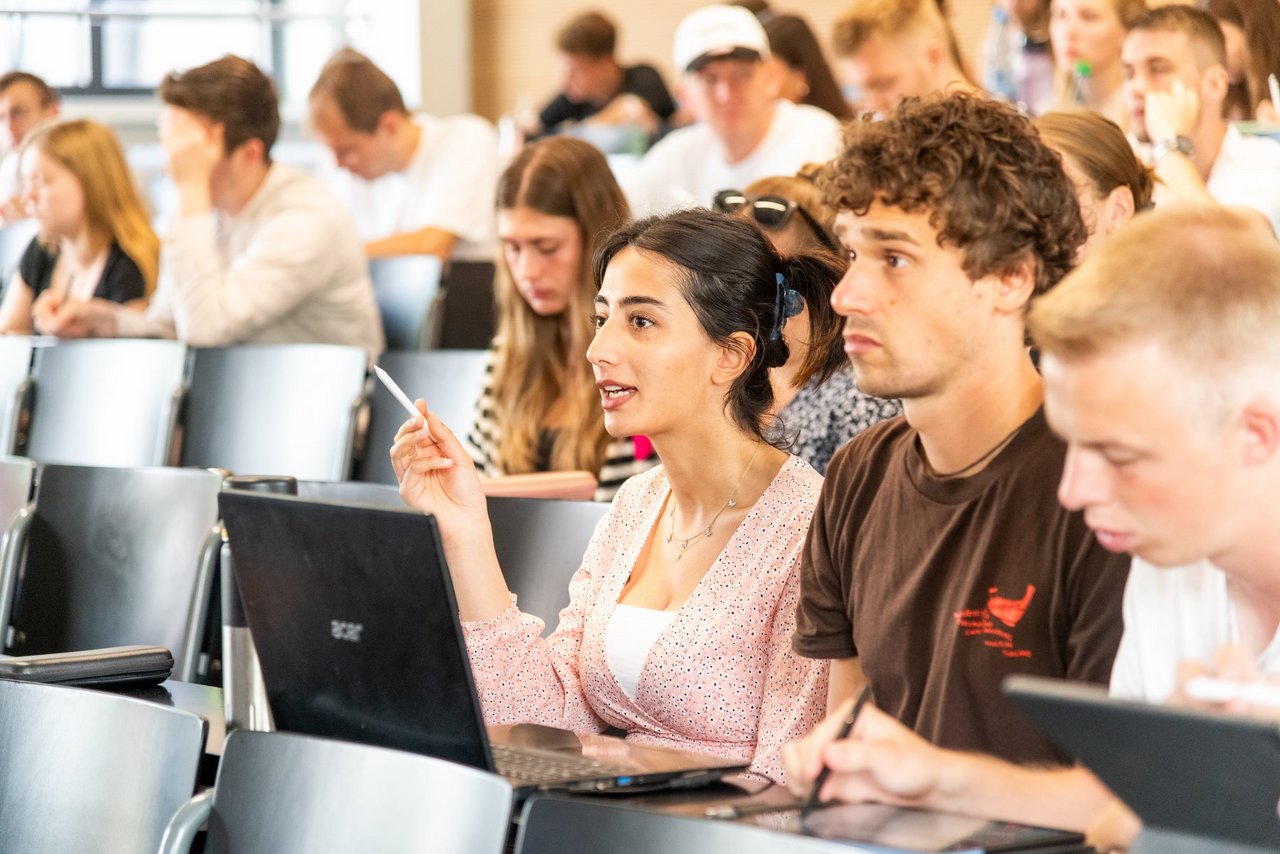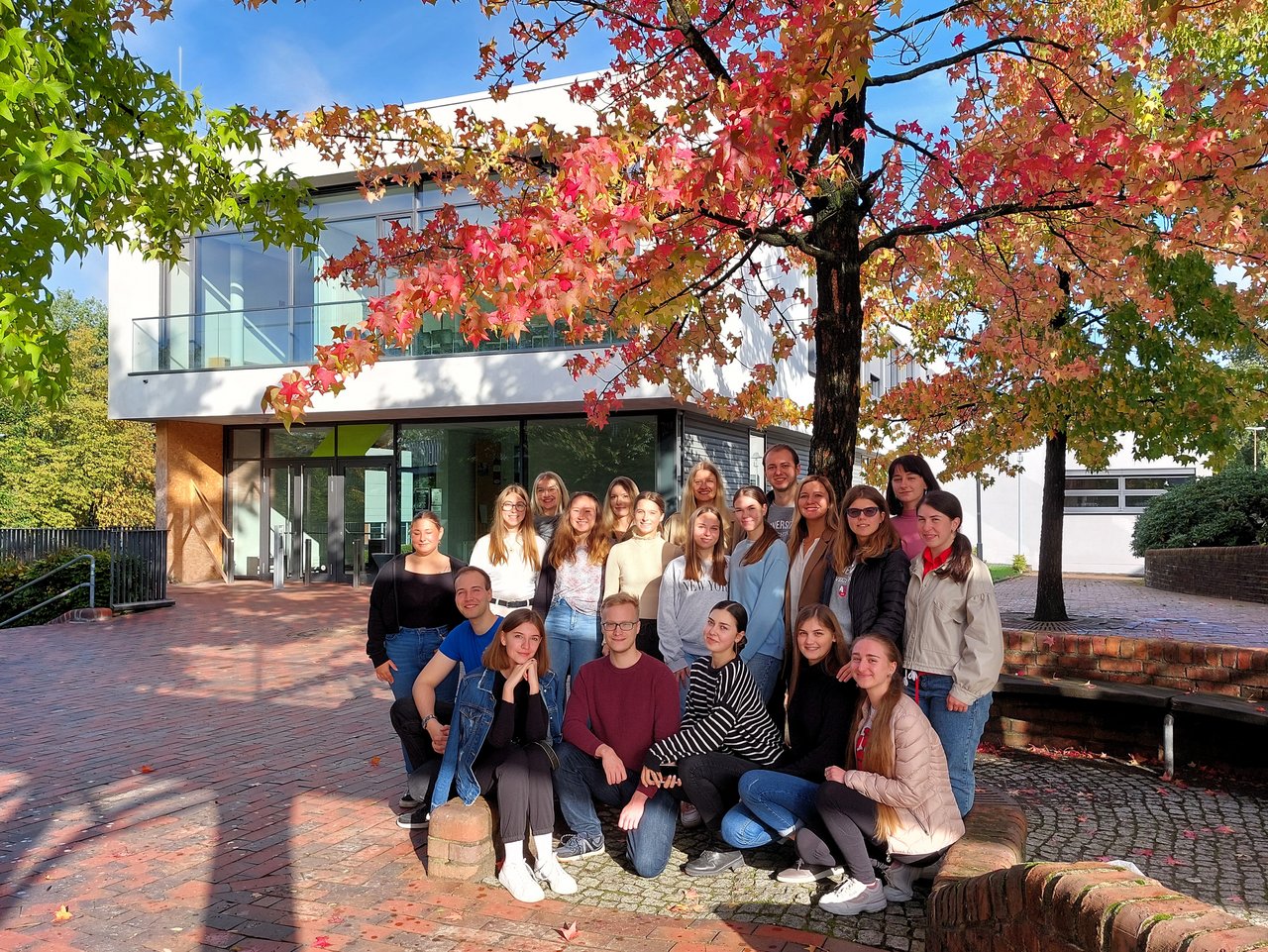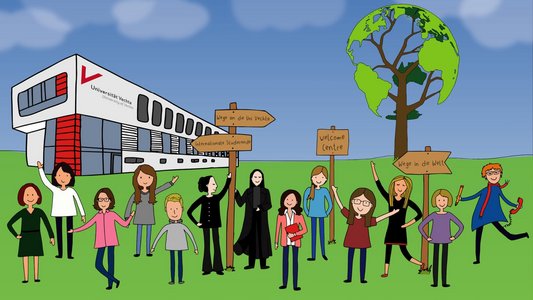You can either
- study two subjects als minor subjects (in a so-called B/B combination) (you then complete two subjects (60 credit points each), a transdisciplinary area totalling 35 CP, internships totalling 15 CP and a Bachelor's thesis totalling 10 CP)
- or one major and one minor subject (in an A/B combination) (you then take 80 credit points in your major and 60 credit points in minor subject, as well as a transdisciplinary area totalling 15 CP, internships totalling 15 CP and a Bachelor's thesis totalling 10 CP)
Students aiming to become teachers are strongly recommended to study a B/B combination.
Teacher training degree for primary schools
If you want to become a teacher at a primary school, one of your subjects must be German studies (German) or maths. You can combine the two subjects with English Studies (English), Design Education (Creative Crafts/Design), Catholic Theology (Catholic Religion), Music Education (Music), Philosophy - Values and Norms (Values and Norms), Elementary Sciences or Physical Education. Of course, you can also study Mathematics and German Studies (German) together.
The subject "Sachunterricht" (Elementary Sciences) is characterised by the fact that a focus must be chosen. Biology, chemistry, geography, history or political science can be chosen as a specialisation.
Teacher training degree for secondary schools ("Haupt- und Realschulen")
If you would like to become a teacher for secondary schools, one of your two subjects must usually be English studies (English), German studies (German), maths or music education (music). Of course, you can also combine these subjects and study English Studies (English) and Music Education (Music), for example. However, it is not possible to combine Values and Norms with Catholic Theology for the teaching profession.
Applications for special authorisations can currently be submitted via the Lower Saxony State Institute for School Quality Development (NLQ) for subject combinations with so-called minor subjects for the teaching profession at secondary schools. This means that subject combinations other than the variants described above are also possible in a combination without a "classic" main subject.
With the Bachelor Combined Studies programme, you can pursue two career paths. With most subjects, you have the opportunity to become a teacher at a primary, lower secondary or secondary modern school. You will then need to complete the Master of Education programme.
Alternatively, you can directly enter the labour market outside of school. Depending on your choice of subject, a wide range of prospects are open to you. Of course, you can also start a Master's programme after your Bachelor's degree.





